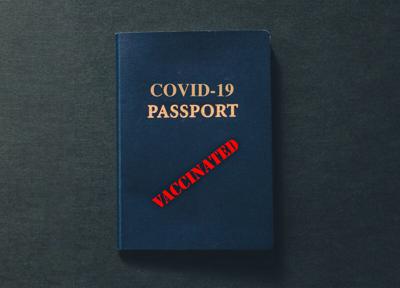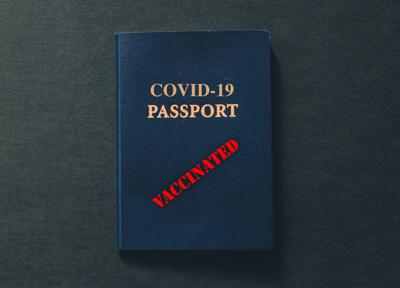
By Christine Sexton, News Service of Florida (Source: www.miamitimesonline.com/) – Gov. Ron DeSantis has emphatically resisted placing restrictions on businesses during the COVID-19 pandemic. But recent comments suggest he may go after companies if they require customers to show proof that they are vaccinated, saying “it’s more than just a private decision.”

The governor was referring to what have been called COVID-19 passports, a phenomenon gathering momentum abroad.
“It’s a very, very bad idea,” DeSantis said of requiring COVID-19 passports. “Look, if you want to go to a movie theater or a concert or all this stuff, go. If you don’t, don’t. But to require someone to show some type of proof of vaccination is completely unacceptable. It’s not something we are going to support here in any way.”
As more people get vaccinated in the hopes of returning to a pre-COVID-19 existence, one that includes travel, debate has emerged about whether countries should require COVID-19 passports as a way to create a pathway.
The U.S. Chamber of Commerce, airline trade organizations and airline labor unions sent a letter to the Biden administration’s COVID-19 response team coordinator, Jeff Zients, last week asking that the United States set some kind of standards for traveling.
The European Union announced this week that it intends to use a “Digital Green Certificate” that will allow European Union citizens to freely travel across member nations. The certificates will prove that people have been vaccinated against COVID-19, have already recovered from the virus or have tested negative. The goal is for the certificates to be in play by summer.
European Union member-states that restrict travelers with the certificates would be required to notify the EU Commission and all member-states and justify the decision.
In Israel, people who are vaccinated or who already have been infected by COVID-19 can get a “green pass” from the Health Ministry. The app allows them to access to gyms, theaters and clubs.
But DeSantis made clear Thursday he has no intention of following Europe or Israel’s lead.
While the concept of the “passport” comes during the COVID-19 pandemic, it wouldn’t be the first time people have been asked to show proof of immunization, said Jay Wolfson, a professor of public health, medicine and pharmacy and senior associate dean at the University of South Florida Morsani College of Medicine.
“When measles, mumps, rubella and whooping cough and polio were rampant, they would wipe out entire communities,” Wolfson said. “So when we developed vaccines for them over the course of the last several decades, most school districts in the country required that students and their families demonstrate that their children had been vaccinated for those horrible diseases. And that even holds true for most universities now.”
DeSantis made his comments at an event in the Capitol building, which has been mostly closed to the public during the Legislature’s annual 60-day session.
Lawmakers and their spouses must be tested for COVID-19 before being allowed entrance to the building, as are reporters. The Senate is not authorizing lobbyists or members of the public to enter the building, requiring them to offer testimony on bills from a remote location. The House allows lobbyists in but on a limited basis.
Wolfson said it is unlikely that Florida businesses would require patrons to show proof of vaccination or negative tests. He said proprietors are unlikely to embrace something that could drive off customers, adding that even if they did, enforcing the policy would be a challenge.
“The governor has made it clear he will nullify any policies that punish patrons for not following masks or distancing,” Wolfson said.
Legislative leaders, meanwhile, have mixed sentiments about whether businesses should be able to require COVID-19 vaccinations.
Senate President Wilton Simpson, R-Trilby, predicted that the majority of Florida residents who want to be vaccinated will be by June, and that COVID-19 vaccine passports shouldn’t be an issue. But when pressed as to whether private businesses should be able to require customers to have COVID-19 passports or be able to ban unvaccinated customers from entering, Simpson saw things differently from the governor.
“On the surface I would say ‘yes,’ because they are a private business. They can do what they want,” he said. “But, clearly, they will bear the responsibility of that decision.”

Be the first to comment